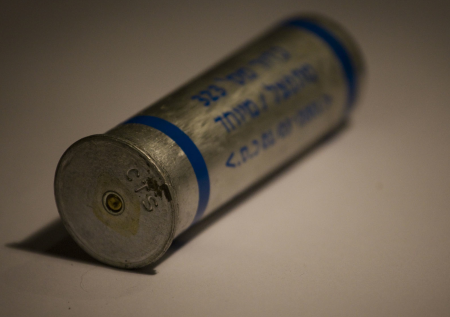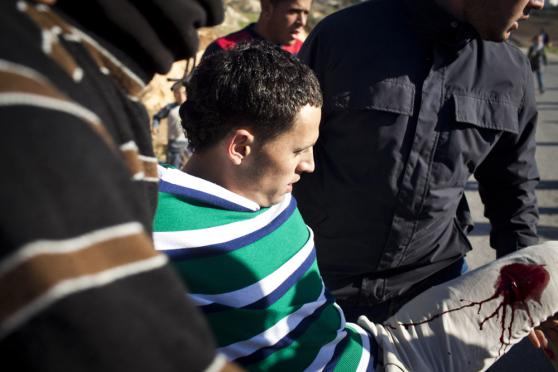Tag: An Nabi Saleh
-
More deaths and injuries from US tear gas in Palestine, around the Middle East, and in Oakland
15 January 2012 | Adalah-NY US-made tear gas, manufactured by companies like Combined Systems Inc. (CSI), Defense Technology, and Nonlethal Technologies, continues to be used by governments including Egypt, Israel, Yemen, Bahrain and the United States to repress popular protest movements for social justice. In response, human rights advocates will protest again on Martin Luther King Jr. Day, January…
-
Israel treats Europeans with unwarranted arrests in Nabi Saleh
by Alex 2 January 2012 | International Solidarity Movement, West Bank In the morning of the 30th of December three members of the International Solidarity Movement and one other international were walking the streets of Nabi Saleh when two military jeeps drew up and stopped next to them. A group of approximately ten soldiers jumped…
-
Live sniper-fire injures protester in Nabi Saleh
23 December 2011 | Popular Struggle Coordination Committee Two weeks after the killing of Mustafa Tamimi during a demonstration in the village, an Israeli sniper shot a protester with live 0.22″ caliber ammunition, banned for crowd control purposes. Earlier today, an Israeli military sniper opened fire at demonstrators in the village of Nabi Saleh, injuring…


